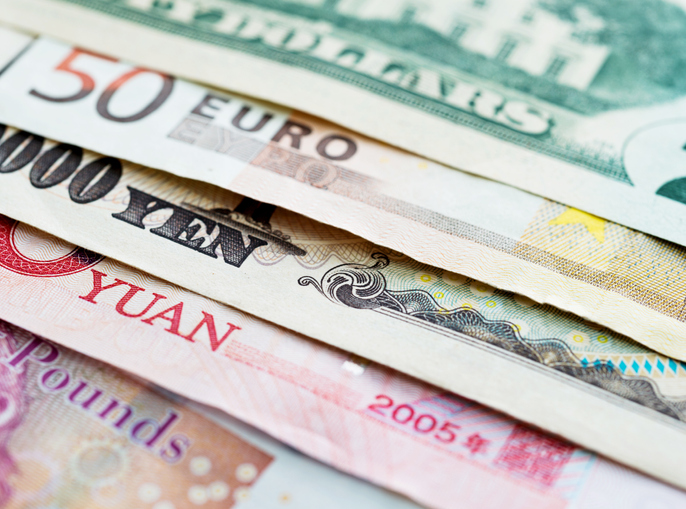How currency moves impact your investment portfolio
There are sound reasons why investors should pay closer attention to currency fluctuations.
26th September 2019 10:09
by Kyle Caldwell from interactive investor
DIY Investor Toolkit: There are sound reasons why investors should pay closer attention to currency fluctuations.

When it comes to personal finances, most people don't think much about exchange rates until they are about to go holiday overseas, but there are sound reasons why investors should pay closer attention.
Money can be made on exchange rate movements, either inadvertently or through tactically positioning a portfolio to benefit from a 'winning' or 'losing' currency. However, it is important to bear in mind that for some countries a rising currency is a good thing for its stock market, but in others it proves to be a hinderance.
A big winner over the past couple of years has been the US dollar, and the strength of the dollar has been a factor behind US indices reaching fresh all-time highs. As Donald Maxwell-Scott, a technical investment manager at Rowan Dartington, notes:
"When assessing the health of an economy, it is useful to look at the strength of the corresponding currency. Some people even view the currency as the ‘share price’ of that economy."
Positioning a portfolio to benefit from a 'losing' currency can also pay off, with the pound a case in point. Since the Brexit vote, the pound has weakened notably against both the US dollar and the euro, but this has been good news for the FTSE 100 index, as over 70% of earnings are derived overseas. Internationally facing companies in the FTSE 100 benefit because their exports are made considerably more competitive by weaker sterling, thus boosting their earnings.
"Effectively, as the 'share price' of the UK economy has fallen, the FTSE 100 has actually risen on the 'currency translation effect'- a fortunate quirk owing to the significant overseas content of the FTSE 100," adds Maxwell-Scott.
UK income investors have also benefited from the weak pound. More than two-fifths of UK dividends are paid in euros and dollars, and exchanging them into a weakened pound has the effect of boosting dividends for UK investors.
Where sterling goes from here is anyone's guess. But where politics goes, the pound will too. According to Trevor Greetham, head of multi-asset at Royal London Asset Management, any event that makes no deal appear more likely will likely lead the pound lower, while any move towards a deal being agreed upon or ending the prospect of Brexit would lead the pound higher. A stronger pound would have a negative effect on returns and dividends for the UK stock market.
This article was originally published in our sister magazine Money Observer, which ceased publication in August 2020.
These articles are provided for information purposes only. Occasionally, an opinion about whether to buy or sell a specific investment may be provided by third parties. The content is not intended to be a personal recommendation to buy or sell any financial instrument or product, or to adopt any investment strategy as it is not provided based on an assessment of your investing knowledge and experience, your financial situation or your investment objectives. The value of your investments, and the income derived from them, may go down as well as up. You may not get back all the money that you invest. The investments referred to in this article may not be suitable for all investors, and if in doubt, an investor should seek advice from a qualified investment adviser.
Full performance can be found on the company or index summary page on the interactive investor website. Simply click on the company's or index name highlighted in the article.
These articles are provided for information purposes only. Occasionally, an opinion about whether to buy or sell a specific investment may be provided by third parties. The content is not intended to be a personal recommendation to buy or sell any financial instrument or product, or to adopt any investment strategy as it is not provided based on an assessment of your investing knowledge and experience, your financial situation or your investment objectives. The value of your investments, and the income derived from them, may go down as well as up. You may not get back all the money that you invest. The investments referred to in this article may not be suitable for all investors, and if in doubt, an investor should seek advice from a qualified investment adviser.
Full performance can be found on the company or index summary page on the interactive investor website. Simply click on the company's or index name highlighted in the article.